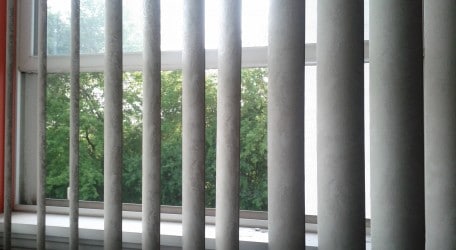
Is marriage a form of entrapment?
Yesterday, my sister was speaking to me about possible topics for her doctoral research; one topic she’s interested in pursuing is whether people who are separated/divorced would consider getting married again, now that they can*.
When I asked this question on Facebook, I was overwhelmed with the replies which came flooding in mostly from women, both on my wall and through private message. I was particularly taken aback by the sheer amount of negativity associated with the idea of marriage. It seemed quite ironic (and rather sad) that for all the hype and romance which fills female brains in the run up to their ‘dream wedding’, judging from the “never again” remarks which came in as furious as bullets, the starry-eyed view of marriage seems to fizzle out pretty quickly.
Of course, I was speaking to people who had been burnt, so to speak. Anyone who has had to go through a separation comes out at the other end shaken, distraught and often, quite bitter – at least until time passes, and they can slowly start to pick up the pieces of their lives. So it is understandable that, viewed from the other side of a broken marriage, the images of Barbie in her wedding gown which we were fed as little girls (brainwashing us into yearning to wear that gown ourselves) are viewed with more than a hefty dose of cynicism.
Too late, women realise that the female obsession to have the perfect wedding is not the same as actually being married.
However, it did take me by surprise that even women who are in a new relationship are quite happy to remain as they are, and have no intention of making it legal every again. Marriage was spoken of in terms of losing one’s independence and freedom. Those who are still single, on the other hand, spoke over and over again of being able “to do what I want, when I want, without anyone interfering”.
This made me wonder (as I have often wondered) whether it is the institution of marriage which causes people to lose their individuality and which erodes their sense of self. Do people, on saying “I do”, automatically start looking at their spouse with a triumphant expression thinking, “right, you’re MINE now, I OWN you”?
Of course, it doesn’t help matters that our very language speaks in terms of “il-mara/ir-ragel tieghi” (my woman/man) when referring to a spouse . Notice there are no specific words for wife/husband so we even say il-mara, ir-ragel, because the “mine” is understood.
Heck, some people even shorten it to “tieghi” (mine) to drive the point home. When I joke around with my girlfriends we often slip into this mode, lamenting sorrowfully, “ghax tieghi ma jhallinix nohrog wahdi” (“mine” doesn’t let me go out alone). But behind the laughs, I am keenly aware that there are women for whom this is reality – they have such controlling husbands that they might as well have stayed under their fathers’ thumbs. Same holds true for domineering wives, of course, who crack the whip at every opportunity.
And I guess that’s why so many women who find themselves separated after a bad marriage in which they could not be themselves, suddenly realise that they relish this new-found freedom. For some, this is the first time in their lives they have been truly independent, especially if they got married when very young. Who can blame them for being loathe to let this freedom slip away by tying the knot again?
Rightly or wrongly, they have come to see the idea of marriage as a trap, in some cases even as a prison, and now that they are free from its shackles, they never, ever want to go back.
I find that it’s truly a shame that marriage has come to be perceived as a form of entrapment, rather than as a union of two people who want to be with one other out of their own free will, rather than because a legal document says so.
*If you would like to take part in this research kindly contact me and I will forward your details.
- June 6, 2012 10 Comments Posted in: Hot Topics





